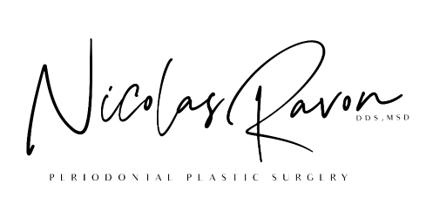Having a bright, healthy smile goes beyond just brushing your teeth twice a day. Periodontal care, which focuses on the health of your gums and the underlying bone structure supporting your teeth, is crucial for achieving optimal oral health. Here’s why prioritizing periodontal care is essential for your long-term dental well-being.
Prevents Gum Disease:
Gum disease, also known as periodontal disease, is an inflammation of the gums caused by plaque buildup. Left untreated, it can lead to serious consequences like gum recession, loose teeth, and even tooth loss. Regular periodontal cleanings by a dental professional remove plaque and tartar buildup, significantly reducing the risk of gum disease.
Strong Foundation for Your Teeth:
Healthy gums act like a strong foundation for your teeth, anchoring them firmly in place. Periodontal care helps maintain the health of your gums and underlying bone, preventing teeth from loosening or shifting over time. This ensures a healthy bite and proper chewing function.
Fresh Breath and Overall Oral Hygiene:
Periodontal care goes beyond preventing gum disease; it also promotes fresher breath and overall oral hygiene. Professional cleanings remove bacteria that contribute to bad breath, while healthy gums prevent bacteria from entering the bloodstream through inflamed gum tissue.
Improves Overall Health:
Research suggests a link between gum disease and various systemic health problems like heart disease, diabetes, and even respiratory illnesses. Maintaining healthy gums through periodontal care can potentially reduce the risk of developing these conditions.
Boosts Confidence and Smile Aesthetics:
Healthy gums not only contribute to oral health but also enhance the aesthetics of your smile. Periodontal care can help maintain a healthy pink gum tone and prevent gum recession, leading to a more confident and youthful appearance.
Taking Charge of Your Periodontal Health:
Maintaining a consistent oral hygiene routine with regular brushing, flossing, and tongue scraping is essential. However, professional periodontal care plays a vital role in preventing and managing gum disease. Schedule regular dental checkups and cleanings as recommended by your dentist to ensure optimal periodontal health and a bright, healthy smile for years to come.
Conclusion
In conclusion, periodontal care is not just an optional extra, but a fundamental pillar of long-term dental health. By prioritizing regular cleanings, proper oral hygiene habits, and addressing any gum concerns early, you can prevent gum disease, ensure a strong foundation for your teeth, and promote overall health and well-being. Invest in your smile’s future with consistent periodontal care and enjoy the benefits of a healthy mouth for life.
FAQs:
What are the signs of needing periodontal care?
Some common signs that might indicate the need for periodontal care include bleeding gums during brushing or flossing, red, swollen, or tender gums, receding gums that make teeth appear longer, loose or shifting teeth, and persistent bad breath.
How often should I get periodontal cleanings?
The frequency of periodontal cleanings depends on your individual oral health needs. Your dentist will recommend a schedule based on factors like your gum health, risk factors for gum disease, and overall oral hygiene routine. Typically, cleanings are recommended every 6 months, but some people may benefit from more frequent cleanings.
What are some ways to maintain good periodontal health at home?
For optimal gum health, brush your teeth twice a day for two minutes each time with fluoride toothpaste, and floss once daily to remove plaque and debris from between teeth.
What are some treatment options for gum disease?
Treatment options for gum disease vary depending on the severity. In the early stages, professional cleanings and improved oral hygiene may be sufficient. In more advanced cases, deeper cleanings, medication, or even surgery might be needed.
Is periodontal care expensive?
Regular periodontal cleanings are generally more affordable than treating advanced gum disease. Many dental insurance plans cover routine cleanings. Investing in preventive care can save you money in the long run by preventing the need for more expensive treatments down the line.


